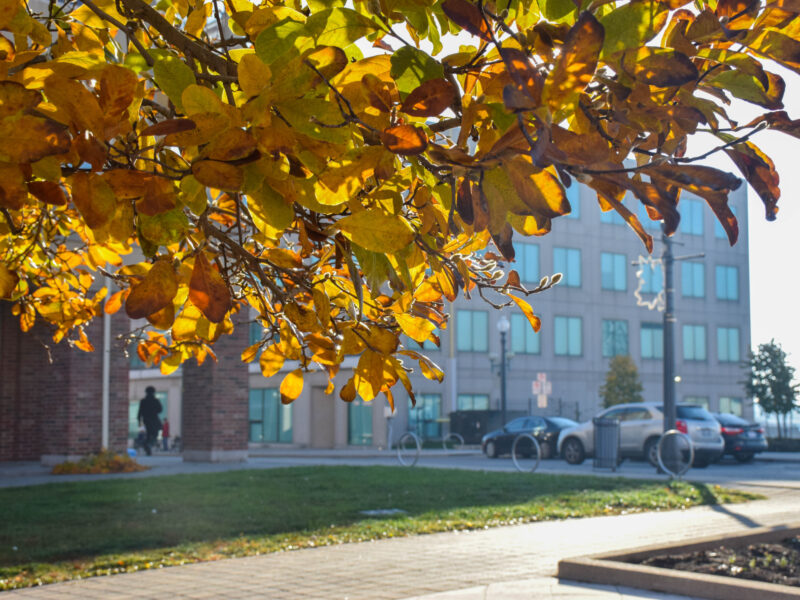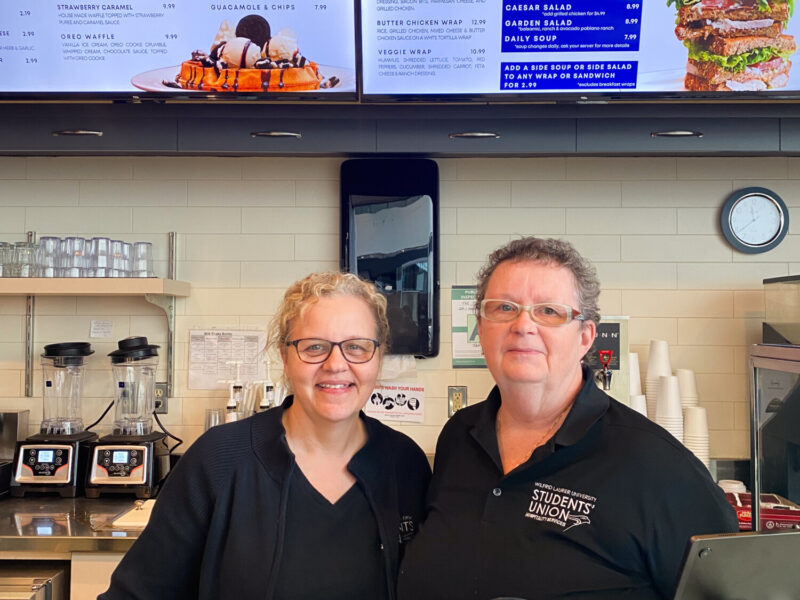Photo Contribution by Nida Shanar
Registration for the Design for Change challenge hosted by Wilfrid Laurier University’s Brantford User Experience Design program is open until Friday, Feb. 10.
The challenge is open to students across Canada in any program of study with an interest in developing human-centred solutions for people experiencing homelessness. Students can participate in the challenge on their own or in teams of up to five.
Human-centred design is an approach that takes the user’s individual wants and needs into consideration throughout the whole process. The Design for Change challenge is based on the concept and definition of human-centred design from IDEO.org.
“We’re discussing how to make homelessness rare, brief and non-reoccurring,” said Taniya Khangura, a user experience design student and research assistant to Abby Goodrum, user experience design coordinator.
With the cost of housing, inflation and interest rates on the rise, homelessness and access to affordable and stable housing are pressing issues nationwide. According to Statistics Canada data, anywhere between 25,000 and 35,000 people may be experiencing homelessness in Canada on any given night.
Based on the 2021 Brantford Brant Point-in-Time Count Report, there are around 238 people experiencing homelessness in the area.
Through this challenge, Goodrum and the team behind the challenge hope to be able to address the stigma and stereotypes around homelessness, said Khangura.
“People think a certain way about what [homelessness] is and why it happens,” she said. “We want people to know that there isn’t a one size fits all solution to this. It’s one size fits one.”
To accommodate participants from across the country, the challenge will be held virtually. Submissions will be judged based on effectiveness and impact, approach and research, innovation and presentation on March 28.
The top three winning teams will take home $3,000, $2,000 and $1,000 per team member respectively.
The challenge is supported by various community partners such as the City of Toronto, the Brantford Library, the Aboriginal Housing Management Association and Harvest House Atlantic.
Because the challenge is open to students with all types of educational backgrounds, a wide variety in the type of submissions is expected — from policy work to physical products. The Design for Change challenge’s website offers some ideas of where and how to start thinking about solutions.
For students interested in registering for the Design for Change challenge, they can do so at challenges.hackworks.com/event/design-for-change-2023. The website also offers resources on human-centred design, homelessness and frequently asked questions.




